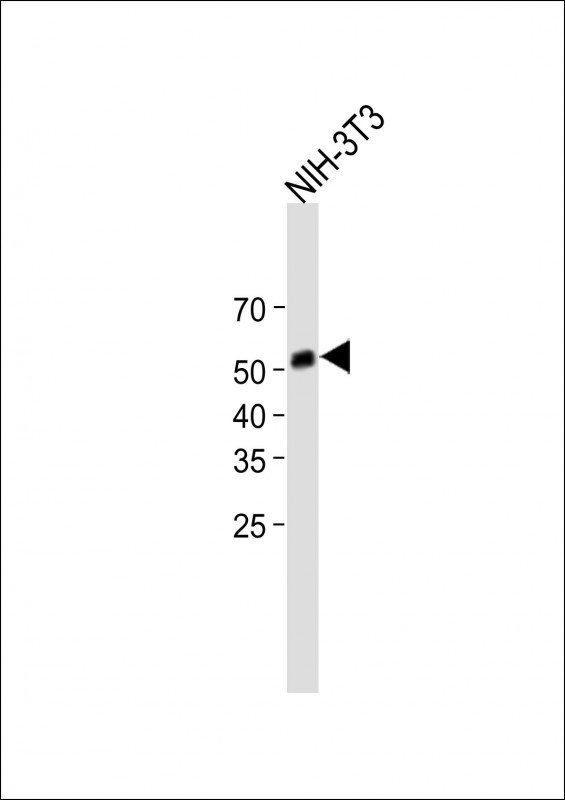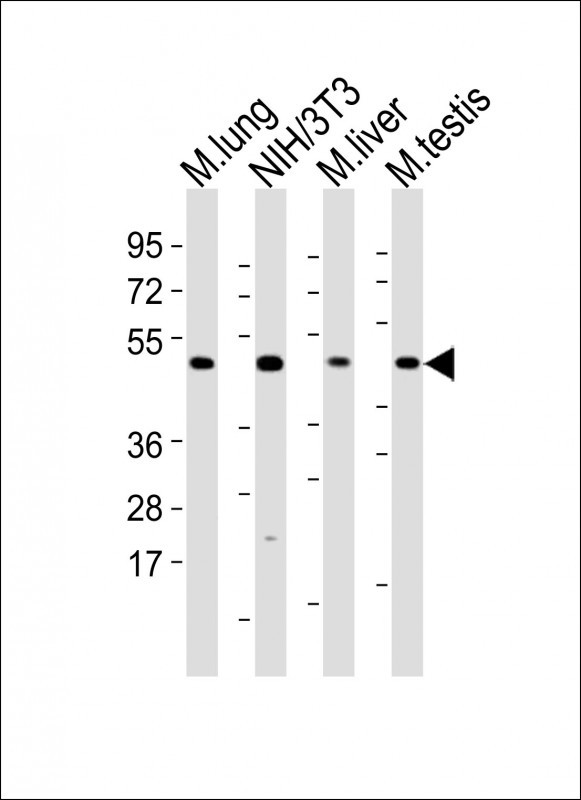

| WB | 咨询技术 | Human,Mouse,Rat |
| IF | 咨询技术 | Human,Mouse,Rat |
| IHC | 咨询技术 | Human,Mouse,Rat |
| ICC | 技术咨询 | Human,Mouse,Rat |
| FCM | 咨询技术 | Human,Mouse,Rat |
| Elisa | 咨询技术 | Human,Mouse,Rat |
| Aliases | Mixed lineage kinase domain-like protein, Mlkl {ECO:0000312|EMBL:AAH237551, ECO:0000312|MGI:MGI:1921818} |
| Entrez GeneID | 74568 |
| WB Predicted band size | 54.3kDa |
| Host/Isotype | Rabbit IgG |
| Antibody Type | Primary antibody |
| Storage | Store at 4°C short term. Aliquot and store at -20°C long term. Avoid freeze/thaw cycles. |
| Species Reactivity | Mouse |
| Immunogen | This Mouse Mlkl antibody is generated from rabbits immunized with a KLH conjugated synthetic peptide between 444-472 amino acids from the C-terminal region of mouse Mlkl. |
| Formulation | Purified antibody in PBS with 0.05% sodium azide. |
+ +
以下是3篇与MLKL抗体相关的研究文献摘要,供参考:
---
1. **文献名称**:*MLKL mediates necroptosis via a molecular switch mechanism*
**作者**:Murphy, J.M., et al.
**摘要**:该研究解析了MLKL在坏死性凋亡中的激活机制,开发了特异性抗体用于检测MLKL的构象变化及寡聚化状态,证实其通过磷酸化依赖的膜破坏通路执行细胞死亡。
2. **文献名称**:*Phosphorylation-driven assembly of the RIP1-RIP3-MLKL complex regulates necroptosis*
**作者**:Sun, L., et al.
**摘要**:研究利用MLKL磷酸化特异性抗体(如抗pS358抗体),揭示了RIP3对MLKL的磷酸化修饰是坏死性凋亡信号传递的关键步骤,并阐明了复合体形成的动态过程。
3. **文献名称**:*Structural insight into MLKL polymer formation during necroptosis*
**作者**:Xie, T., et al.
**摘要**:通过冷冻电镜和免疫印迹(使用MLKL N端抗体),揭示了MLKL激活后形成纤维状聚合物的结构基础,为靶向MLKL的抑制剂设计提供了依据。
---
**备注**:上述文献为示例性质,实际引用时需核对具体期刊及作者信息。MLKL抗体的研究多集中于其磷酸化状态检测(如p-MLKL)、亚细胞定位及功能验证,建议结合实验目的(WB/IHC/IF)选择对应抗体参考文献。
×